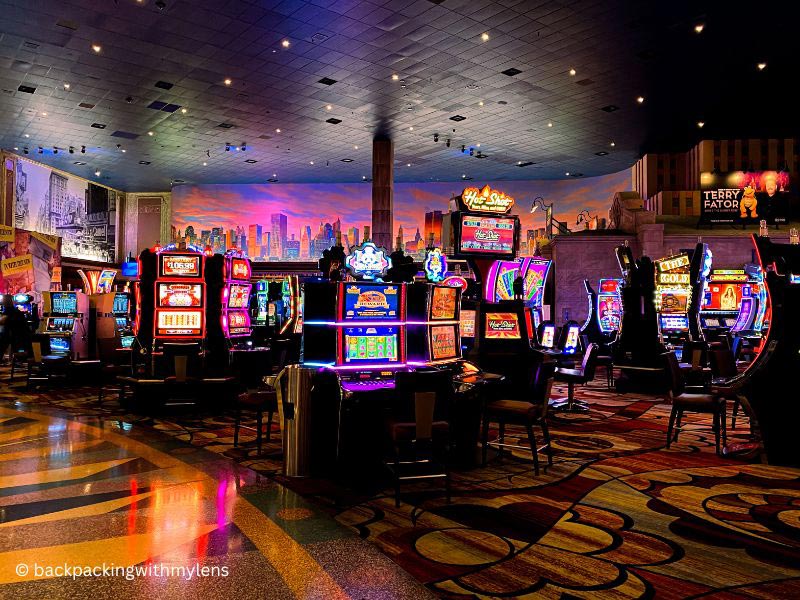
Casino games have long captured the interest of individuals around the planet, becoming an important part of both leisure and society. From the sparkling lights of Nevada to the engaging experience of virtual casinos, these games evoke thrill, uncertainty, and sometimes even a sense of sentimentality. They are beyond simply entertainments; they have woven themselves into the fabric of human experience, influencing everything from cinema and melodies to style and books.
The appeal of casino games goes beyond the gambling aspect, tapping into larger themes of fortune, risk, and psychology. As players gather around a gaming table or spin the wheel of fortune, they engage in an timeless ritual that echoes with our communal desire for adventure and unpredictability. This obsession has led to the growth of many references in films, songs, and electronic games, showcasing how intensely entrenched these activities are in pop culture. Whether it is the intense drama of a legendary robbery film or the colorful nightlife portrayed in music videos, casino games have carved out a substantial niche that reflects our bond with reward.
Historical Significance of Casino Activities
Gambling activities have played a key role in social contexts throughout the ages. Originating from old societies, forms of chance were often linked to ceremonies or events. For example, early forms of these activities can be traced back to historic China and the Roman Empire, where die games and betting on results were popular pastimes. These games not only served as leisure but also as methods of social interaction, facilitating relationships among individuals within societies.
As cultures evolved, so did the sophistication and organization of casino games. The creation of formal casinos in the 17th century, particularly in Italy, marked a significant shift in how games were perceived and organized. With designated spaces for gaming, the casino became a community center where patrons from various backgrounds gathered. This change contributed to the legitimization of gambling, transforming it from a mere pastime into an established industry that shaped economy and policy.
The effect of gambling games on mainstream culture cannot be overlooked. As they were brought into the limelight in books and film, games such as Texas Hold’em and blackjack became icons of chance, chance, and tactics. Famous characters and stories have developed around these activities, reflecting societal views towards luck, prosperity, and vice. This interest with gambling games has permeated various forms of media, cementing their place in the public imagination and connecting them to wider cultural stories throughout history.
Depiction of Casino Games in Entertainment
Casino games have long been a popular topic in various forms of media, reflecting both the fascination and nuances of gambling culture. Films such as Ocean’s 11 and Casino Royale portray characters who navigate dangerous scenarios, showcasing not only the attractiveness of the casino atmosphere but also the methods and choices that come with playing popular games like Texas Hold’em and blackjack. These movies often dramatize the excitement of winning and the potential repercussions of losing, encapsulating the perils involved in gambling. 58win
Television shows have also explored the world of gambling activities, often integrating them into the storyline as a context for story progression and conflict. Series like Vegas depict the stories of casino workers and customers, highlighting the vibrant, often disorderly energy of the gaming floor. Docuseries featuring high-stakes gambling competitions further emphasize the attraction of casino games, drawing viewers into the excitement and planning involved in each session. Through these portrayals, media not only entertains but also stimulates conversations about luck, expertise, and the nature of randomness.
Video games have increasingly included casino games into their design, allowing players to simulate the thrill of betting without financial exposure. Games within the landscape of digital gaming often include virtual slots, online poker, and other casino favorites, creating an interactive experience that mirrors actual casino experiences. These virtual portrayals make gambling activities accessible to a worldwide viewer base, appealing to both players who indulge and those who enjoy the excitement of simulation. As a outcome, the representation of casino games in entertainment continues to shape societal views and importance, highlighting their role in society and the cultural landscape.
Impact of Gambling Activities on Communities
Casino games have a significant effect on society, influencing various facets of culture and interpersonal behavior. They often function as a platform for social interaction, where people come together to enjoy a shared activity. Casino trips with friends or visits to casinos become group events that foster connections and create memories. This collective aspect enhances the fun value of gambling activities, making them a favored choice for festivities and leisure activities.
Additionally, casino games have been depicted in numerous films, television shows, and written works, influencing perceptions and attitudes towards gambling and betting. Icons like James Bond playing baccarat or the high-stakes poker scenes in films have embedded these games in the shared imagination. This depiction often glamorizes the lifestyle associated with gambling, attracting new players and influencing trends in both fashion and behavior. These representations can ignite curiosity and lead to a deeper investigation of the intricacies of gaming.
Nonetheless, there are also negative implications associated with the popularity of casino games. The allure of quick monetary gain can lead to problem gambling and economic troubles for some people. The community must grapple with these consequences, promoting responsible gambling and awareness of the dangers involved. Finding a balance between the fun aspect of casino games with the potential for harm is crucial to ensure that they remain a positive aspect of our societal fabric.
